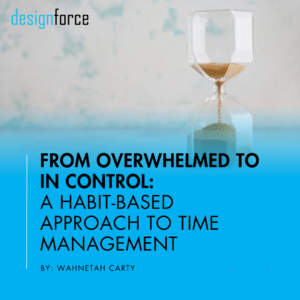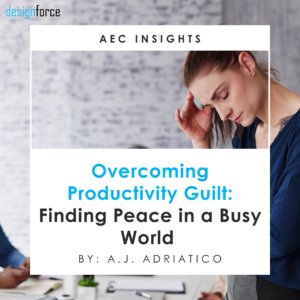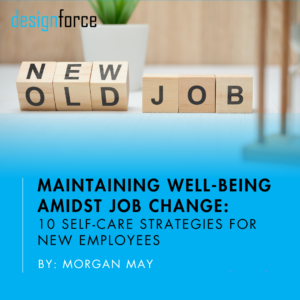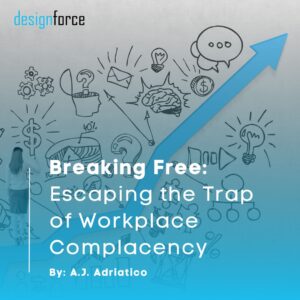During my first year of work as a mechanical engineer, I was encouraged to join the local chapter of ASHRAE (American Society of Heating, Refrigeration, and Air-Conditioning Engineers). My colleagues spoke highly of the organization, telling me it was a terrific way to network, attend technical seminars, and learn about the industry. I signed up online, started getting regular emails, and showed up to a happy hour or two. It was nice to meet some new people, but if I’m honest, I wasn’t really seeing the hype about being “involved.”
Fast forward to two years later – I started attending some of the technical seminars/events with my colleagues and agreed to participate in an upcoming panel for a student chapter of ASHRAE. I attended a regularly scheduled meeting the week before the event. People I hadn’t ever spoken to approached me saying they heard about the upcoming panel and were either excited to attend the event or wanted to learn more about me and my experience. It was the first time that I got a taste of the community this organization created – even getting some small exposure to this was meaningful. This experience taught me that no matter how tempting it might be, you can’t just sign up for a listserv and hope you suddenly start to see the benefits of being part of a professional organization. You truly do get out what you put in.
Participating in these organizations is so valuable for professionals of any experience level, but the benefits for young professionals specifically are boundless! I had the pleasure of interviewing Julian Chiveral, Vice President – Technical of the Baltimore Chapter of American Society of Plumbing Engineers (ASPE), to get his perspective on how he has personally reaped the benefits of being a part of ASPE, and why he urges all young professionals to join professional associations.
What made you want to get involved in a professional organization?
Chiveral explains that as he was starting out as a mechanical engineer, he was mainly working on HVAC, but soon got the opportunity to delve into plumbing. He felt that gaining this experience could only help his career and could perhaps differentiate him from other engineers whose experiences were limited to HVAC. He was first encouraged to join ASPE by his colleagues, joking that there was a promise of free food. But in all seriousness, he explains that the technical education and networking opportunities were the main reasons he returned. “The biggest thing that made me want to keep going back was the opportunity for technical knowledge. Every month, there is a one-hour meeting on something either super specific or something basic level and foundational. I found it just provided additional resources and knowledge to pull from for what you are working on day-to-day in your job.”
“The other benefit is having the opportunity to have professional contacts in the industry that aren’t only from your company. When I started, all my college friends went into different industries so the only people I knew in MEP were at my company. I did not know how other companies did things or what other types of projects people were working on. It allowed me to have those connections and casual conversations like ‘Oh you work on residential projects – what is that like? I have never done that before.’”
He also adds that “the technical knowledge, personal connections, and the fact that you are an involved member of a professional society are good ways to accelerate your career and signal to other people that you are serious about your career and about this industry. It reflects well when you are actively attending these meetings and people start recognizing you because you’re always there.”
What have you learned from having a leadership position on an executive board?
As VP, Technical for the Baltimore ASPE chapter, Chiveral is responsible for leading the technical meetings. This entails determining seminar topics, finding presenters, and coordinating the meeting logistics. He says that having a board position has helped increase his confidence and obtain skills that apply to the workplace.
“I have been in the role for about a year and a half. I feel like it’s helped me with a lot of personal growth. I’ve had to put myself into different, challenging situations – for example running meetings. Standing in front of a group of 40 engineers, with most having a lot more experience than me, can be intimidating. There is a level of confidence that you must push yourself into, even if it is uncomfortable. I am more confident now than I was one year ago.”
He explains that his leadership role has made him rethink his capabilities to some extent. He was recently discussing an upcoming ASPE conference with his manager and was asked whether he was presenting. “I said, ‘No, I am just there to listen’. And my manager said, ‘Okay, how about you think about presenting at the next one?’ That is outside of my comfort zone – but now the idea is in my head and maybe a year from now at the next technical symposium, I will lead a technical session for a new technology that I’ve used on a project. It never occurred to me that I was qualified to do it.” He explains that opportunities like this might not have happened so early in his career had it not been for his involvement in ASPE, and for the confidence he is gaining through his board position.
What advice would you give to young professionals just starting out who want to try out a new professional association?
“Right off the bat, start by going to the meetings. It’ll be awkward at first, because you might be showing up alone and you are not going to know anybody. And that can be scary,” Chiveral admits. One tip he suggests is finding another young face in the crowd and striking up a conversation. There is a good chance that that person is feeling the same way and will welcome a conversation! “Starting with ‘Tell me about your job, I’ll tell you about my job’ is a great icebreaking approach,” he remarked.
But he can attest that it does get better. “I think it’s awesome now that I am three years in, and when I go to meetings, I now see familiar faces. You do have to put in a little time to have that experience, but it ends up being like a hangout at these meetings.”
Chiveral also encourages people to talk to their firm to see whether they will provide financial support for professional association involvement. Many companies pay for meeting or membership fees as part of an investment in employees’ professional development. “The value of getting involved in a professional organization is great but for a company to have their employees involved is immense,” Chiveral explains. “I feel very lucky that the companies I have worked for have been very supportive of me getting involved and going to technical meetings and conferences. There is so much to be gained.”
Lastly, Chiveral urges young engineers to take advantage of both the technical resources and the people they meet through organizational involvement to build a strong foundation for their learning. Along those lines, one thing Chiveral and his board members on ASPE did for their young professionals was add a “101” series that occurs monthly and is centered around foundational topics targeted at the more junior-level professionals. They had an approximate 10% increase in membership over the past year and most of those new members were young professionals. “We polled the young members and the number one thing they were interested in was gaining technical experience/knowledge. Networking was also important but came second. So, we have tried to tailor that focus.”
Final Thoughts
Whether you are interested in being an executive board member or just an active general body member, joining an industry organization can provide foundational skills for your career, teach you personal and professional skills that can carry into the workplace, and allow you to grow your external network within the industry.
If you are interested in joining ASPE – Baltimore Chapter, they have meetings on the 4th Wednesday of every month at Olive Grove Restaurant (crab cakes are a usual occurrence at these events!). New members can find additional information here: https://baltimoreaspe.com/.
They work closely with the ASPE – DC chapter which have meetings on the 4th Tuesday of every month. New members can find additional information here: https://aspedc.org/.
The September meeting topic for both chapters is “Communication Skills for Construction & Consulting.” You won’t want to miss it!
If you are interested in discussing ways to enhance your career, take that next step, or are looking for unbiased, AEC industry-specific career guidance, reach out to me at th@designforce.me!
Julian Chiveral is a mechanical engineer at CMTA, based out of their Annapolis office. He serves as the Vice President, Technical of the Baltimore chapter of ASPE.

Related Posts
Let's learn together.
Stay inspired and in the know on all things A|E|C.
Sign up for our monthly newsletter.










